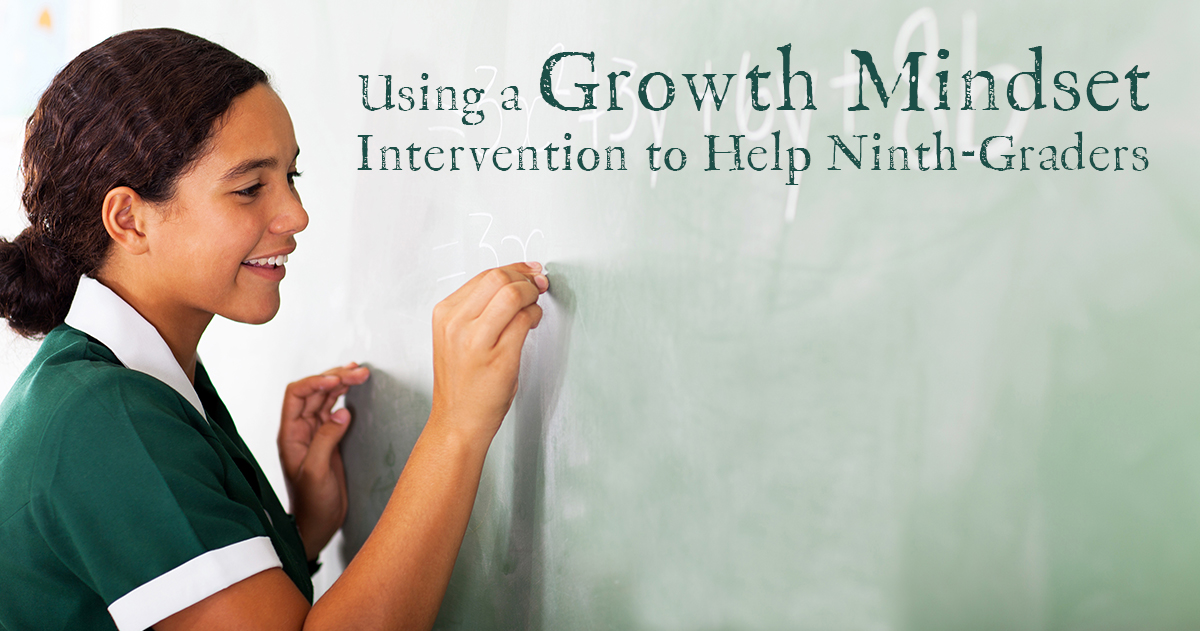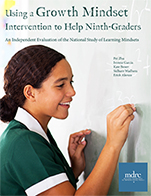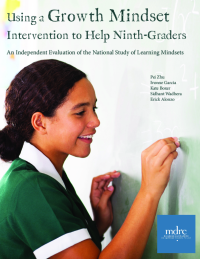Using a Growth Mindset Intervention to Help Ninth-Graders
An Independent Evaluation of the National Study of Learning Mindsets

 The transition from middle school to high school can be challenging for adolescents as they are faced with new academic challenges and an unfamiliar social environment. Students who successfully navigate this transition and pass their ninth-grade classes are far more likely to graduate from high school with their peers and attend college than those who fail courses in the ninth grade. The growing awareness of the importance of the first year of high school for future success has prompted the development of interventions for ninth-graders.
The transition from middle school to high school can be challenging for adolescents as they are faced with new academic challenges and an unfamiliar social environment. Students who successfully navigate this transition and pass their ninth-grade classes are far more likely to graduate from high school with their peers and attend college than those who fail courses in the ninth grade. The growing awareness of the importance of the first year of high school for future success has prompted the development of interventions for ninth-graders.
One type of such intervention uses psychological tools to communicate to young people that their brains can grow “stronger.” These positive beliefs about intelligence, often referred to as “growth mindset” beliefs, are expected to result in academic resilience, which can lead to better academic performance.
To test whether a growth mindset intervention could improve the academic performance of adolescents, the National Study of Learning Mindsets (NSLM) implemented a low-cost growth mindset intervention specifically designed for ninth-graders in a nationally representative sample of regular high schools during the 2015-2016 school year. The national study used a student-level randomized controlled trial design to gauge the impacts of this intervention on students’ mindsets about intelligence, their own behaviors, and their academic achievements. With support from the Bill & Melinda Gates Foundation, MDRC reviewed the data from the NSLM and conducted an independent evaluation of this growth mindset intervention.
Key Findings
This evaluation found the following:
- The intervention changed students’ self-reported mindset beliefs, their attitudes toward efforts and failure, and their views on academic challenges.
- Immediately after the intervention, students were more likely to take on challenging academic tasks.
- The intervention produced statistically significant impacts on students’ average academic performance, improving their average grade point average (GPA) as well as their math GPA, and reducing the proportion of students with failing grades.
- Certain groups of students and schools might benefit more from the intervention than others. These groups include students with relatively low academic achievement before the intervention, schools in the midrange of the academic performance spectrum, and schools where students are more inclined to take on challenging tasks.
These findings are substantively consistent with the results published by the NSLM research team.






